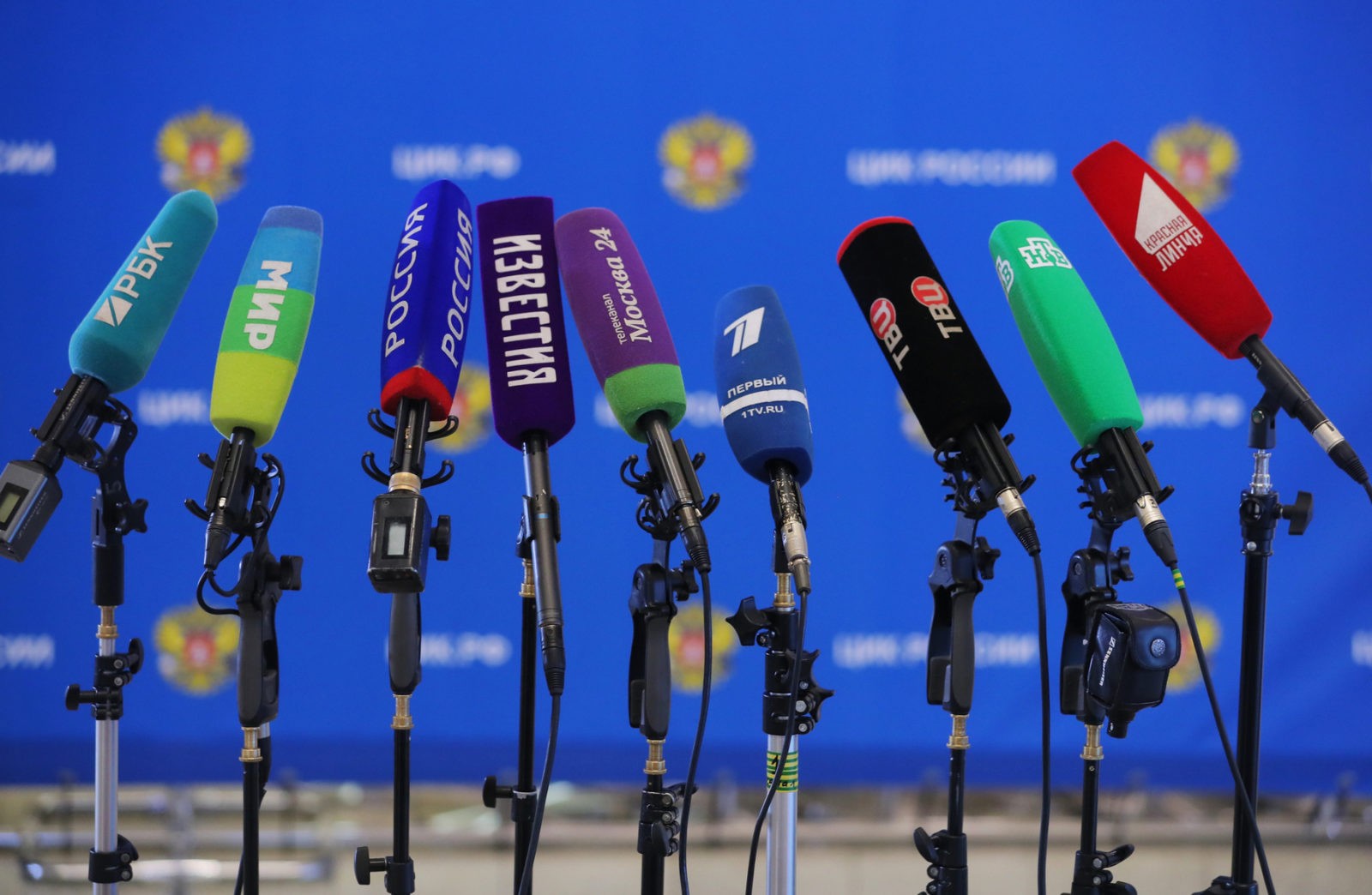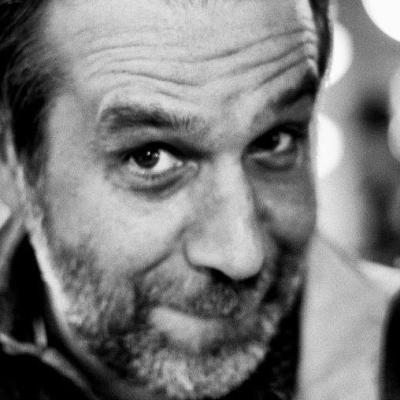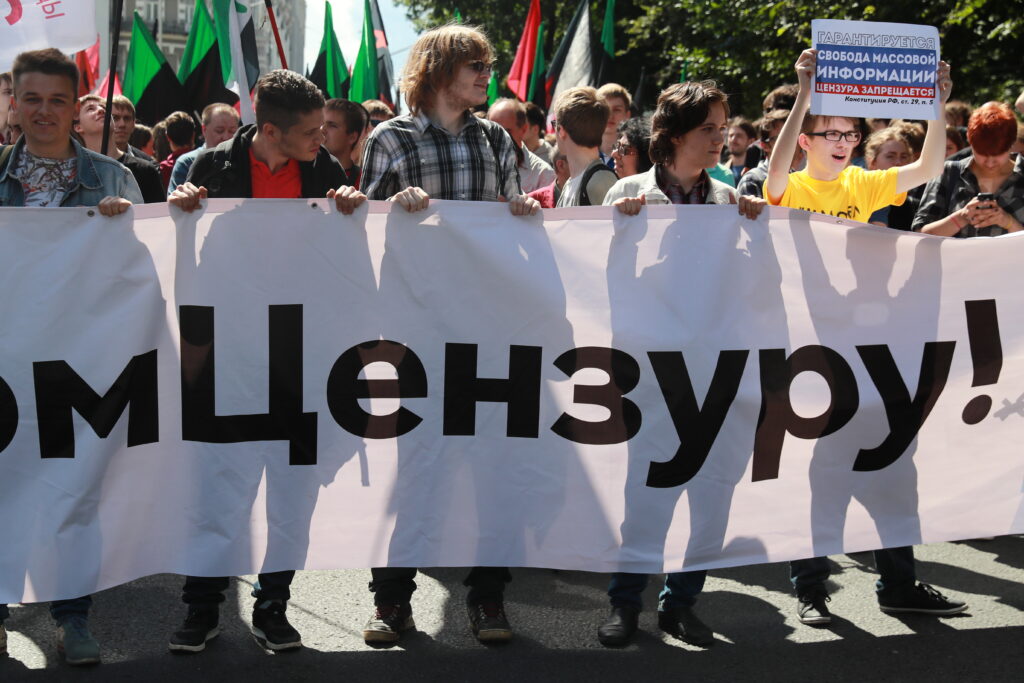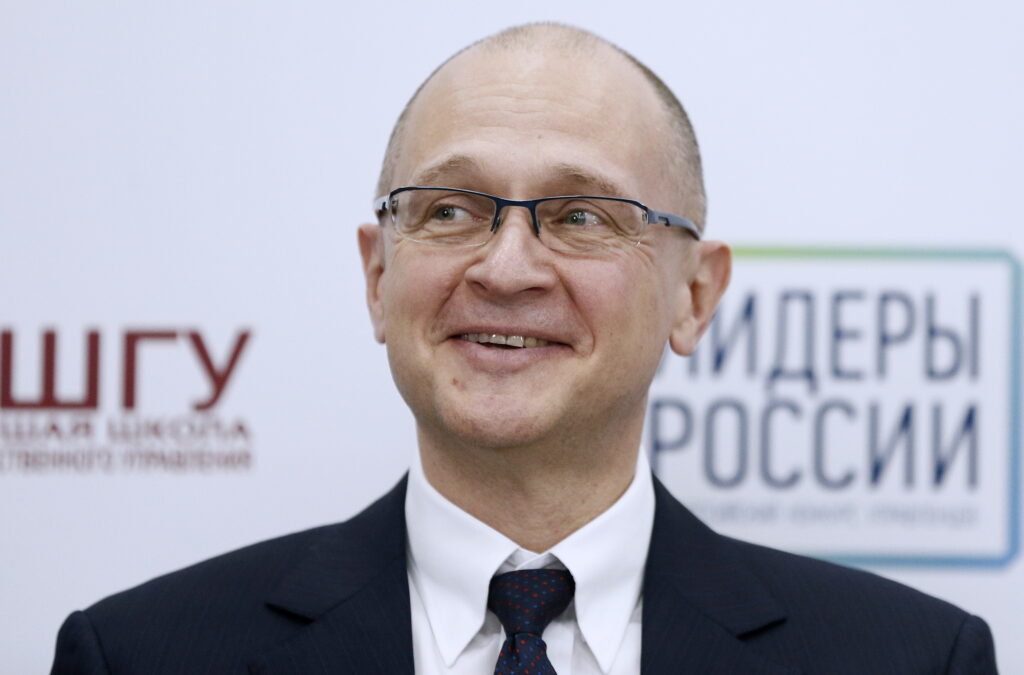Russia’s media landscape is a minefield. Readers are overly sensitive, jaded or cynical after years of toxic debates encouraged by the state. Journalists (and media professionals in general) are sharp-elbowed and defensive. Even to neutral criticism of their activity or motives. They themselves are usually subject to public vilification, accused of venality or readiness to serve hidden external forces. So even a hint at anyone trying to ‘blamestorm’ them stirs up emotional counterattacks. Sometimes these skirmishes get labelled as a ‘media shitstorm’.
It is all the more dangerous to enter this minefield with sweeping generalisations. Not only can enemies and ideological opponents be offended, but also friends. Acquaintances may perceive such generalisations as a snub to their specific work or cause.
Consequently, media criticism (as well as journalism, by the way) is in decline. TV critics try to survive, with pain and misery. But even recklessly brave authors, aware of Konstantin Ernst’s sick and vengeful sensitivity to criticism of his masterpieces, seek to avoid dissecting programs broadcast by Channel One Russia. It is almost impossible to find an ingenious analysis of non-TV media, even in the trade press. Of course, there is no such tradition. But to my mind, the main reason is that critical discourse is impossible without a general analysis of what is causing an existing situation. Or, without dissecting the motivations of those who run the Russian media in particular. The causes are more or less clear: the existing political regime is obsessed with an idea of control over the mass media but is unable to reintroduce totalitarian practices (censorship, the nomenklatura and punitive psychiatry). Unlike the Soviet model, the Russian political model is forced to tolerate the existence of a small island of the new dissidents’ samizdat, partly due to external circumstances and partly as a result of experience gained in the 1980s. It is much more difficult to explain the motives behind the degradation of the Russian media after 2000.
Five years ago I wrote a long article about the reinstatement of media censorship in Russia and explored the narrow area of informal policy, secret decisions and cases at the points of connection between the state and media sector. Since this is where the restoration of the censorship model took place. Albeit a partial and caricatured censorship model. In effect, it controls the information agenda and adjusts the mass-media context in line with government expectations. This is not naturally distorted agenda-setting due to the views and biases of editors and journalists. Instead, it is a conscious, purposeful framing of a predesigned, fabricated agenda aimed at specific social engineering. In the case of today, that means the construction of Putin’s majority. Like Soviet mass media, propaganda activity cannot be called journalism; propaganda does not bother with ethical considerations or social responsibility. It is in fact tasked with ensuring a result at any cost. In the case of Russian public media and media close to the Kremlin, the price is paid by the audience itself in the form of taxes, budget subsidies and the cost of municipal media holdings.
In that long article, I did not focus on the second component of the ‘backwards evolution’ of the Russian mass media – what was really happening in the editorial offices and media companies, in the minds and actions of editors and journalists, media owners and the sovereign’s whip masters. I will take the risk of setting a tone for the discussion despite the many mines that will explode.
Ten Years Later
When the global discussion about the future of the media (known as the Future of News, or FoN, in the English-speaking world) began about ten years ago, this began a seismic journalistic paradigm shift. It is still underway, against the backdrop of an equally global disinformation war. There were three central issues discussed: the exhaustion of the traditional business model; the loss of effective feedback from news audiences; and the challenge posed by online and social media to the traditional media industry. For Russian print outlets, the discussion on the future of news was not so relevant in 2008–2009; however, due to the secondary position of the domestic media market from an ideological and organisational point of view, certain ideas borrowed from Jeff Jarvis, Clay Shirky, Emily Bell and other FoN discussion leaders were adopted and successfully appropriated as ‘achievements of the national innovative press’. Thus, the integrated newsrooms used by several channel brands; multimedia journalism; social media editors; long-form pieces; and ‘entrepreneurial journalism’ (now known in the professional milieu as ‘native advertising’ and ‘influencer marketing’) were all offered as possible solutions by FoN authors, including the author of this text.
Over the past decade, newspapers did not die out completely. Much less did television collapse under the blows dealt by YouTube and its ilk. Online media outlets simply took their proper place; some even learned how to earn enough money to exist and develop. Time spent on the consumption of media content — which had belonged to traditional forms of mass communication — now had to be shared with online giants, social networks, mobile applications and MMOGs. The news media scaled down; cumulative revenue losses in developed countries (including Russia) amounted to about 50% in constant prices. That was due to the loss of entire segments of the advertising market and losses of revenue generated by the audience. Falling demand led to reduced circulation and points of sale. Gaining new revenues – or finding ‘digital pennies instead of paper dollars’, as FoN leader John Patton described it – turned out to be difficult. It can be achieved by market leaders or market segments: more than 12 years of monitoring of the online subscription market and other forms of digital monetisation show that only projects of the largest media and start-ups, offering services that were new in form and content (often completely different from traditional media) have succeeded.
It must be admitted that the Russian media industry also survived the storm, and also reached a plateau — though not at all in the manner chosen by the rest of the world of competitive capitalism (or even socialism, as in China). The overwhelming majority of Russian media outlets can survive only due to financial subsidies from the state. They receive these in a variety of forms, from direct budget financing to ‘information service contracts’. According to various estimates, direct and indirect donations from the state budget, regional budgets, state corporations and media owners close to the Kremlin are either equal to or exceed the part of the advertising market analysed by the AKAR (Russian Association of Communication Agencies) which estimates the scope of media advertising). These subsidies rescued the industry. Especially the print and online media, which suffered from a domino effect in 2014-2015 after yet another collapse of the rouble. Those subsidies also provided a soft landing for many television channels. But this was not for charity. The overwhelming majority of Russian media outlets paid for their salvation in the form of ‘taking into account the interests of the state’ in their main activity. In Kremlin slang, this is called ‘appropriateness’ (адекватность) — a compound text/meaning that includes concessive negotiability, toadyism, acceptance of both pre- and post-factum censorship of content and even the information agenda, receptiveness of state slogans and, last but not least, aggressive participation in the information war.
‘Appropriateness’ has become a defining attribute of the Russian editor, journalist and media manager; appeasing and useful for the Kremlin. Obviously, ‘appropriateness’ in the Russian media environment is a successor of the Soviet nomenklatura in journalism, especially as today’s ‘appropriate’ people are in some cases the careerists of the late Soviet era. However, on closer examination, quite significant differences can be found.
Russian state-owned and pro-Kremlin private media outlets of all shapes and sizes resemble the Soviet party press only at first glance. For three decades, massive structural, content-related and technological modernisation of the media has been carried out. This was not a natural process of evolution; on the contrary, it was often an aggressive, proactive transformation, like genetic engineering. The journalists and editors from the Soviet censorship days are anachronisms, even if they are editors in chief today. The core of the staff in the media market are people who became professionals after 1990 (when pre-censorship was banned). There is an increasing number of media professionals who know about the Soviet press only by hearsay.
Venality and Greed
To provide at least a tentative explanation of the propaganda-driven degradation of Russian journalism at state expense, the formula ‘children, wives and mortgages’ was invented quite a long time ago. Reportedly, journalists work on state channels and in other media outlets with dubious professional ethics ‘because of my family’. This socio-anthropological type believes that a job in a state organisation is stable; it guarantees a decent salary and relatively convenient working hours; and it is possible to reach a compromise with one’s conscience. If one delves into ethics, one can say that this is a wholesale version of venality: according to Karl Jaspers’ apt remark in his correspondence with Martin Heidegger after the war, ‘Germany’s deadly […] fault is in the fact that millions pretended that nothing was happening.’ This psychological trait of ordinary citizens has been explored by sociologist Elisabeth Noelle-Neumann. She defined the phenomenon as a ‘spiral of silence’ (with reference to Nazi Germany). In circumstances where conformism is rewarded, people choose not merely non-resistance to state evil, but what they believe is constructive cooperation. As a result, they get involved in the dirty tricks of the state and become its accomplices. Most often, the ‘spiral of silence’ is a flawless machine – but it works only until the moment when the regime has outlived itself, either because of a military defeat or a collapse under the weight of its own problems. To the extent that the remnants of conscience allow them, those silent witnesses or even accomplices begin to suspect something. Then they are in a hurry to line up with the winners. Or even join the ranks of reformers as perestroika frontrunners, having reached a well-practiced compromise with their consciences.
When it comes to high-profile journalists — the celebrities of pro-Kremlin propaganda, journalists who are ahead of the Kremlin in its desires and paranoia — the spiral of silence model does not work anymore. First, their involvement in the regime is not simply due to their life circumstances, their search for any job at all and the pressure of the professional milieu. Second, they are not like rank-and-file employees who may assume (not unreasonably) that their job will be in demand under any circumstances, despite changes for better or for worse in their profession or country. These celebrities are vitally interested in preserving the existing state of play in political, economic and professional terms.
The political devotion of personas such as Vladimir Solovyov or Dmitry Kiselyov is determined by the status they have been elevated to precisely by the existing regime. It is not that they like everything about Putin and fully agree with the Kremlin’s every political move. But Putin has given them an opportunity (the dream of every demagogue) to shape the mass ideological model of incumbent power in Russia. They cannot ignore this temptation, this narcotic, this roar of applause.
The economic interest is not only about wages or a share in advertising revenues (or government subsidies). Although obviously the Kremlin’s propaganda stars earn good money themselves and give their loved ones an opportunity to earn money. Getting close to the pinnacle of Kremlin power translates into direct and indirect access to the ‘beneficiary rights’ of the corporate state. It is a chance to access the stream of public financing, which, in their imagination, grows into a full flowing river.
Well, professional interest is also quite understandable. People without ambition do not reach top positions on television or managerial positions in the mass media. Nor do those without self-doubt; jealousy of the more talented; fear of failure, and other similar traits inherent to those climbing that greasy pole. After achieving their dream position, an ambitious and ever-flexible media bigshot will strive to defend it to the bitter end. Not even their own end, but of all those around them.
To have a full picture, it makes sense to mention a few words about those who manage and own media outlets in contemporary Russia.
The Raw Boneed And Visible Hand Of the Unfree Market
Independent mass media are one of the necessary features of a democratic society. It is vital to add a few key definitions, which clarify the concept of independence and allow the media to claim the status of the fourth estate.
Only private and competitive media can be the fourth estate. If they are private, they have their owners. If they are competitive (or competing, to be more precise), they operate under market conditions, where there is competition for audience, ideas, money, authors and allies. The owner can provide start-up or working capital to the media outlet, but cannot win the competition. The editor and their staff cannot form an investment pool themselves, but they can effectively compete and earn money.
This specific symbiosis, which doesn’t always give good results, is determined by society (which is also the audience). It depends on society and, at the same time, influences it. At different points in time, different societies have had different sentiments towards the media: they can adore them and hate them the following day; they can listen to every word or ignore wild cries. In its attitude to the media, Russian society has followed a complex trajectory for almost 30 years of Russian statehood. It began at a peak of almost universal love (perestroika in 1991), then sank into hatred, rose along a recovering curve of trust and plummeted again.
The media market expanded and developed in those days. It was the end of the Soviet model when the existence of a publication, radio or television channel was up to the CPSU Central Committee. Newspapers, journals and broadcasters went through trial and error in search of what the audience wanted. They built what by 2008 had become one of the largest markets in Europe. Up to a certain time, state-owned media were at a disadvantage to competitive media. Private owners, unlike ministries, make fast decisions. They can quickly add new capital or change profitability requirements. Private owners also acted as a buffer between the Kremlin and the editorial boards. For the media holding companies before 2008, it was clear how flexible they were. Alliances shifted.
Still, the 2008–2009 financial crisis cut revenues of the Russian media market by 30–35%. It came with rising costs, as almost all media outlets were growing fast and investing in the future on the eve of the crash. It dealt it two further, initially unnoticeable but ultimately painful blows: first, it destroyed the illusions of investment attractiveness, especially for foreign capital, and then it struck again, this time shattering the political appeal of media ownership (even with the consent of the Kremlin). The desire to control and even create an artificial agenda greatly increased among Putin’s entourage after the information crisis of the war of the 8th of August 2008; this desire became even more profound after the white ribbon protests in the winter and spring of 2011-2012. Soon after, the Duma showed the door to foreign owners, editors and even audience measurement companies. Formally and at the micro level, everything started to resemble competitive capitalism. But at the macro level, all decisions are made in the Kremlin offices. As was done in the past by the Department of Agitation and Propaganda of the Central Committee of the CPSU.
The full-fledged capitalists in Russia’s mass media market can be counted on the fingers of two hands; moreover, none of them is even close to participating in big politics. Some media companies exist in a hybrid model: partly under market conditions, partly in pursuit of profitable and cheap public funds, be it direct subsidies from the budget, money from the regions, political allies of the Kremlin or state corporations advised to render aid to friendly media outlets. Access to state support does not require beating the competition. It requires loyalty, appropriate behaviour and readiness to take into account the multitude of interests that exist in the networks of the Russian authorities.
The laws adopted by the State Duma in 2012-2014 n effect ban foreign ownership and management of media outlets in Russia, and alter the market of media measurement. They come with bylaws to virtually exclude civil society and external NGOs in media activity. The emergence of the concepts of ‘foreign agent’ and ‘undesirable organisation’ led to the actual curtailment of foreign systemic media financing. Although grants from American and European NGOs were never a significant source of revenue for the Russian media, they did enable journalists to get more education, master technologies, adopt professional ethics, and maintain social responsibility. At the same time, the grantors also lost interest in Russia. As one of the founders of Internews Russia, Eric S. Johnson, told me recently, ‘Russia attended the school of media development, and graduated from it, although with terrible grades. Now you will have to deal with it yourselves, the assistance has been redirected to other countries, where there are no Russian risks or Russian failures.’
Denial of Responsibility
This grim picture will not be complete if we do not mention those who do not go with the flow. True journalism in Russia is alive, although it occupies far less space in the national media consumption than the propaganda and agitation machine controlled, directly or indirectly, by the Kremlin. This vibrant space consists of dozens of rather small journalistic groups, and hundreds of individual journalists, who manage to work honestly on their beats. Even in completely marginalised editorial boards and broadcasting stations. These are people who do their work honestly and, one can say, bravely – as nothing infuriates the new censors as much as the uncontrollable agenda created by these free and honest journalists.
But as noted above, the very existence of this isle of independent mass media is at least partly manipulated by the Kremlin. Legal samizdat including Novaya Gazeta, Ekho Moskvy, Dozhd, and even the offshore outlets Meduza and Insider, as well as independent regional publishers, is a way to control steam pressure in social relations. It serves as an excuse in international arguments about the oppressive nature of the Russian state (‘Look, we have Novaya Gazeta, they write nasty things about Putin…’). With each passing month, the number of formal restrictions imposed on the media under Article 4 of the Media Law (‘the inadmissibility of abuse of the freedom of speech’) is growing. The number of informal restrictions is growing daily; so with each day, statesmen, officials and organisations at lower and lower levels come up with the system of ‘blocking’ topics that are inconvenient to them, both within the framework of agreements with legitimate media outlets and the commercial service of Roskomnadzor (the Federal Service for Supervision of Communications, Information Technology and Mass Media).
It is hard for journalists who continue to fulfil their mission of informing, educating and helping society control power to survive in modern Russia. And not only because each bit of their work is at loggerheads with the interests of the Kremlin. During its years of fighting against freedom of speech, press, expression and even arts, the Kremlin was able to create a remarkable framework in the mass consciousness: the conviction of the silent majority that honest, critical journalism is part of malicious intentions against Russia. As in the days of the Great Terror, any investigation is immediately labelled as commissioned by the intelligence services of hostile countries, emigrant oligarchs, George Soros or the U.S. State Department surrounded by a bunch of malicious Russophobic NGOs. Moreover, those who passed on their media outlets and professional values to the Russian state are most zealous in their efforts to expose independent journalists.
The conversation initiated by Riddle became pressing long ago. All of us — observers, participants, victims, and even violators of journalistic values — need to talk about what happened to the post-Soviet media. Sooner or later, the post-Soviet stage will be over, and a new era will arrive. Ties with the disgusting, stifling and shameful past should be severed.
The Last Word Goes To Ivan Golunov
P.S. An event that occurred after this article was written cannot be ignored in a discussion of the state of Russian media. Moscow law enforcement officers fabricated a case against Meduza investigative journalist Ivan Golunov. On the 11th of June, the Ministry of the Interior dropped charges for ‘failure to prove guilt’. In the very first hours after Golunov’s detention became known to the public, not only representatives of the opposition press and friends but also nomenklatura media figures who traditionally follow the Kremlin’s line spoke in his defence.
Despite the natural desire to see professional and civic solidarity across dividing lines, the support and even rescue of Golunov from the iron fist of Russian pseudo justice cannot and should not become an excuse for indulgence of the activists fighting on ‘the dark side’. One can understand the motives that make state propaganda officers suddenly declare Golunov their colleague. This could be true solidarity (putting doubts aside); the desire to put eggs into different baskets with a long-term expectation of improving one’s reputation; one’s own fear of being arrested under false pretences; as well as the Kremlin’s direct instructions (when the Kremlin decides to take advantage of mistakes made by corrupt policemen to cleanse the ranks of the authorities). Besides, there is no reason to believe that this support is genuine and not based on calculation, at least until state media employees start to openly and frankly discuss their own problems such as censorship and self-censorship, corruption and venality under the patronage of their outlets’ owners, the employment ban and other notorious problems that have demoralised the editorial boards of newspapers, TV channels and websites which employ them.
Part two of “Russian media: Moscow and Beyond Calling”: how conspiracy theories took post-Soviet Russia by storm
Part three of “Russian Media: Moscow and Beyond Calling”: on the factors influencing the Russian public’s trust in sources of information
Part four of “Russian Media: Moscow and Beyond Calling”: on the place of the military’s press in Russia’s media landscape










